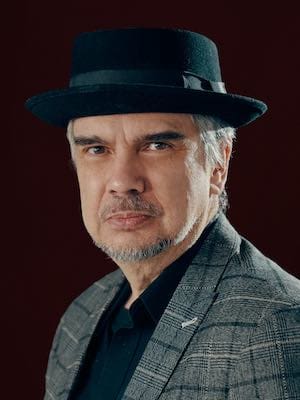I always find it curious that those who have spent most of their lives advocating legislation and policies detrimental to communities of color are usually among the first to accuse people of color of being racists. Take the recent example provided by former Speaker of the House, Newt Gingrich, who was echoing the comments of Rush Limbaugh. According to Gingrich, Supreme Court nominee Judge Sonia Sotomayor should withdraw from being considered to the Supreme Court because she is “a Latina woman racist.”
Gingrich and Limbaugh reach their conclusion when, in a 2001 speech, Sotomayor questioned the oft-quoted notion that a wise old man and a wise old woman would reach similar conclusions when adjudicating a court case. Specifically, Sotomayor said, “I would hope that a wise Latina woman with the richness of her experience would more often than not reach a better conclusion than a white male who hasn’t lived that life.” This led Gingrich to conclude that if a white man would have said something similar, he would be forced to withdraw. In a tit-for-tat brand of justice, Sotomayor should therefore do likewise.
What Gingrich and Limbaugh fail to comprehend is that those whom society privileges have developed a limited worldview because they have no need to know or recognize the world that exists beyond their margins. Those who are living or have lived among the disenfranchised are in a better position to have a richer grasp on reality because they know what it means to be a marginalized person attempting to survive within a social context designed to benefit others at their expense.
In W.E.B. Du Bois’ monumental book, “The Souls of Black Folk,” he introduces the reader to the concept of double-consciousness, a concept that describes the experience African-Americans endure when they are pressured to forsake their self-consciousness. African-Americans – and I would add all marginalized people – are forced to see themselves as the white world sees them.
This leads to the disenfranchised defining themselves through the eyes of the dominant culture via common stereotypes imposed upon them. When they interpret the world around them, they look toward the dominant culture to set the standards by which society is normatively seen and understood. At times, these interpretations are responsible for the maintenance of very oppressive social structures that keep them at the margins of society.
The first act toward any form of liberation from oppressive structures is to see oneself through one’s own eyes and define oneself through one’s own terms. Rejecting how the dominant culture sees and defines people of color becomes in itself a consciousness-raising activity that allows those who are marginalized to define themselves apart from the negative stereotypes usually imposed. Learning to interpret reality from one’s social location can become an integral part of this liberating process. Approaching societal power structures from the underside of the U.S. culture empowers disenfranchised communities.
It would be erroneous to assume that the interpretations of our social structures that arise from the margins of society are solely for the consumption of people of color, the point Sotomayor was trying to make by her comment. Because of the hermeneutical privilege of the oppressed, marginalized groups are in a better position to interpret reality than the dominant culture – not because they are superior but because they have lived a life with a foot in two different worlds.
Interpretations, whether they be about society or the biblical text, that are developed from the margins contain truths that are not solely restricted to the disenfranchised. Within these interpretations, the dominant culture can also discover liberation from oppressive social structures because the oppressors, like those oppressed, are locked into a societal structure that prevents both sides from becoming all that God has intended creation to be: saved and liberated.
Why then are the worldviews and constitutional interpretations of Sotomayor so needed on the Supreme Court? It is because people of color know what it means to live in a Eurocentric society where their very survival requires them to learn how to navigate laws, customs, traditions and idiosyncrasies designed to protect the power and privilege of the dominant culture. Although people of color know what it means to be marginalized within a Euro-American culture, those with power and privilege have no concept of what it means to belong to a disenfranchised group.
In fact, most Euro-Americans can achieve success without having to know anything about or associate with people on the margins. The same cannot be said if the roles were reversed. Those who are marginalized know how to exist in both their world and the world where they lack a voice. If they are ever appointed to the Supreme Court, they can bring an expanded and raised consciousness to the entire judicial process. Not since Justice Thurgood Marshall have we had a person of color on the court. No doubt, Sotomayor’s presence has been long overdue.
Miguel A. De La Torre is director of the Justice and Peace Institute and associate professor of social ethics at Iliff School of Theology in Denver.
Professor of Social Ethics and Latinx Studies at Iliff School of Theology in Denver, Colorado, and a contributing correspondent at Good Faith Media.

